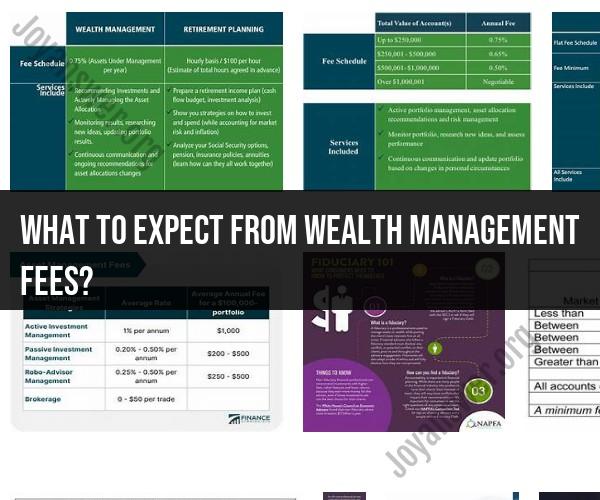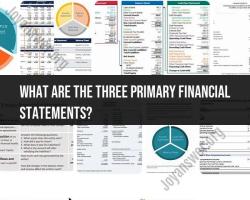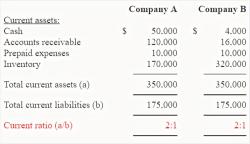What to expect from wealth management fees?
Wealth management fees can vary widely based on the services provided, the financial institution or advisor you choose, and the amount of assets under management. When evaluating wealth management fees, here's what you can expect and should consider:
Types of Fees:
Percentage of Assets Under Management (AUM): This is the most common fee structure in wealth management. Advisors charge a percentage of the total assets they manage for you. Typical fees range from 0.50% to 2% of AUM annually, but they can go higher for specialized services.
Hourly or Fixed Fees: Some advisors charge by the hour or a fixed fee for specific services like financial planning or investment consulting. Hourly rates can vary widely, but they may range from $100 to $500 or more per hour.
Commissions: In some cases, advisors earn commissions from selling financial products like insurance or investment products. This fee structure can create potential conflicts of interest, as advisors may have an incentive to recommend products that generate higher commissions.
Account Size: Typically, wealth management fees are tiered, with larger accounts paying lower percentages. The more assets you have under management, the lower the effective fee rate may be.
Services Included: Wealth management fees should cover a range of financial services, including investment management, financial planning, retirement planning, estate planning, tax optimization, and more. Make sure you understand which services are included in the fee.
Performance-Based Fees: Some advisors charge a performance fee on top of their standard AUM fee if they exceed certain investment performance benchmarks. This is less common but may be an option for more aggressive investors.
Additional Costs: In addition to the advisor's fees, you may incur costs related to investment products (e.g., mutual fund expense ratios), trading fees, and administrative expenses. It's essential to be aware of these additional costs.
Fee Transparency: Ensure that the fee structure is transparent, and the advisor is clear about how fees are calculated and billed.
Fiduciary Responsibility: Work with a financial advisor who has a fiduciary duty to act in your best interest. Fiduciary advisors are legally obligated to prioritize your financial well-being over their own.
Value Provided: Evaluate the value of the services provided relative to the fees charged. A skilled wealth manager can potentially add significant value through tax optimization, risk management, and investment strategies that may outweigh the fees.
Negotiation: In some cases, you may be able to negotiate the fee structure with your wealth manager, especially if you have a substantial amount of assets to manage.
Performance Reporting: Ensure that your advisor provides regular performance reports and communicates their investment strategy and decisions.
It's essential to conduct due diligence when selecting a wealth manager or financial advisor. Ask for a clear fee schedule, understand how the advisor will be compensated, and consider the overall value you expect to receive for the fees paid. Additionally, compare fees and services among different advisors to make an informed decision that aligns with your financial goals and preferences.












